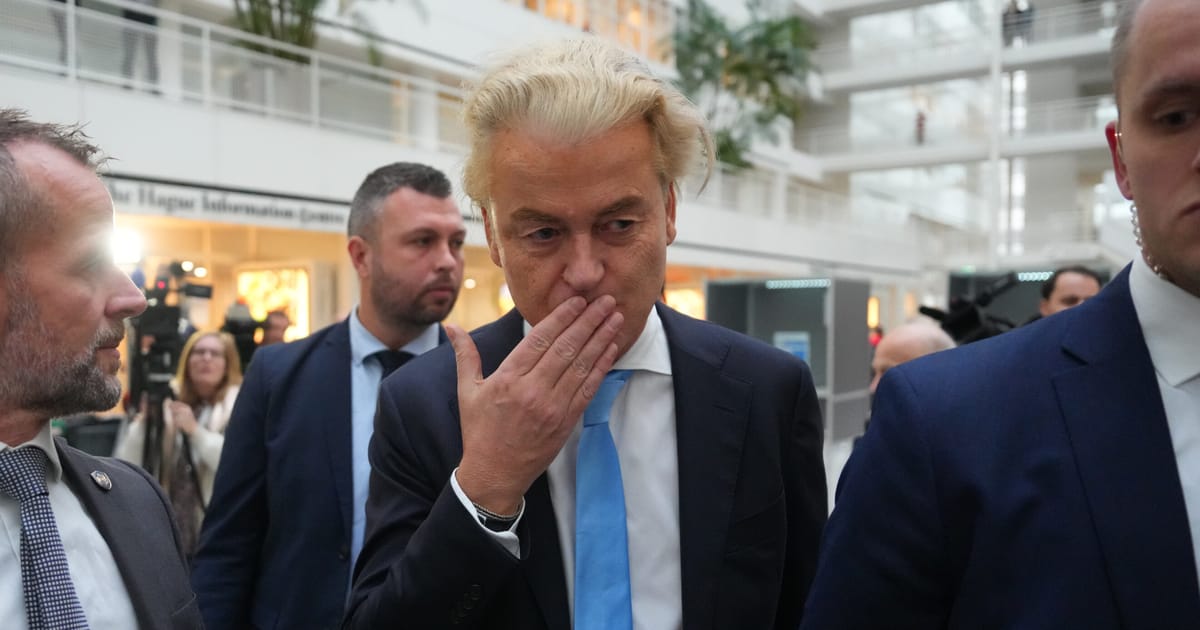The anti-Islam, euroskeptic radical Geert Wilders is projected to be the shock winner of the Dutch election.
In a dramatic result that will stun European politics, his Freedom Party (PVV) is set to win around 35 of the 150 seats in parliament — more than double the number it secured in the 2021 election, according to exit polls.
Frans Timmermans’ Labour-Green alliance is forecast to take second place, winning 25 seats — a big jump from its current 17. Dilan Yeşilgöz, outgoing premier Mark Rutte’s successor as head of the center-right VVD, suffered heavy losses and is on course to take 24 seats, 10 fewer than before, according to the updated exit poll by Ipsos for national broadcaster NOS.
A win for Wilders will put the Netherlands on track — potentially — for a dramatic shift in direction, after Rutte’s four consecutive centrist governments. The question now, though, is whether any other parties are willing to join Wilders to form a coalition. Despite emerging as the largest party, he will lack an overall majority in parliament.



True, but the generation that tends to vote far right is the boomer generation - it’s the generation that failed to pass on rising prosperity and gave us the climate crisis.
If you look at elections in europe, it’s pretty consistently the 35-45 year old demographic that votes right the most. Every age group votes right and it’s not like it’s only boomers, with the exception of young voters <30 (and women) which do vote significantly more left
E. G. Netherlands https://www.statista.com/chart/8178/pvv-largest-party-but-not-among-youth/
Do we know why? For Americans, I can see the nihilism of the grunge era affecting the latter part of that group, and possibly having a lasting effect towards political compass.
But I can’t think of a reason of the top of my head for European millennials driving so deep into that side of politics.
I think it’s for many different reasons, but a bit the same as everywhere. Some are protest votes due to a distrust in government in general, then 35-45 is the age most get kids and in contrast to their parents generation they live in apartments, not single family homes, as houses aren’t affordable. Then there’s the general widening of the wealth gap and the populists pretending they have a solution and blaming it on immigration (while themselves being a big reason for the problem in the first place…), while left parties often get tricked into reacting to right rhetoric, letting the right dictate the discussion. Old people are less affected by the wealth gap, young people don’t have kids so they don’t notice yet. And in it’s also a question of mobilizing ones base, the right parties get a ton of money for ads and so on, they are good at stirring up fears of existential threats(which is ironic given the real existential threat of climate change), while a lot of people are disillusioned, so middle aged left voters are less likely to actually go vote whereas more right voters do. Of course <30 voters worry more about climate change and are more motivated to go vote, since they’ll be the most affected by its effects.
I’m sure there’s many more reasons but these are the first ones I can think of off the top of my head.